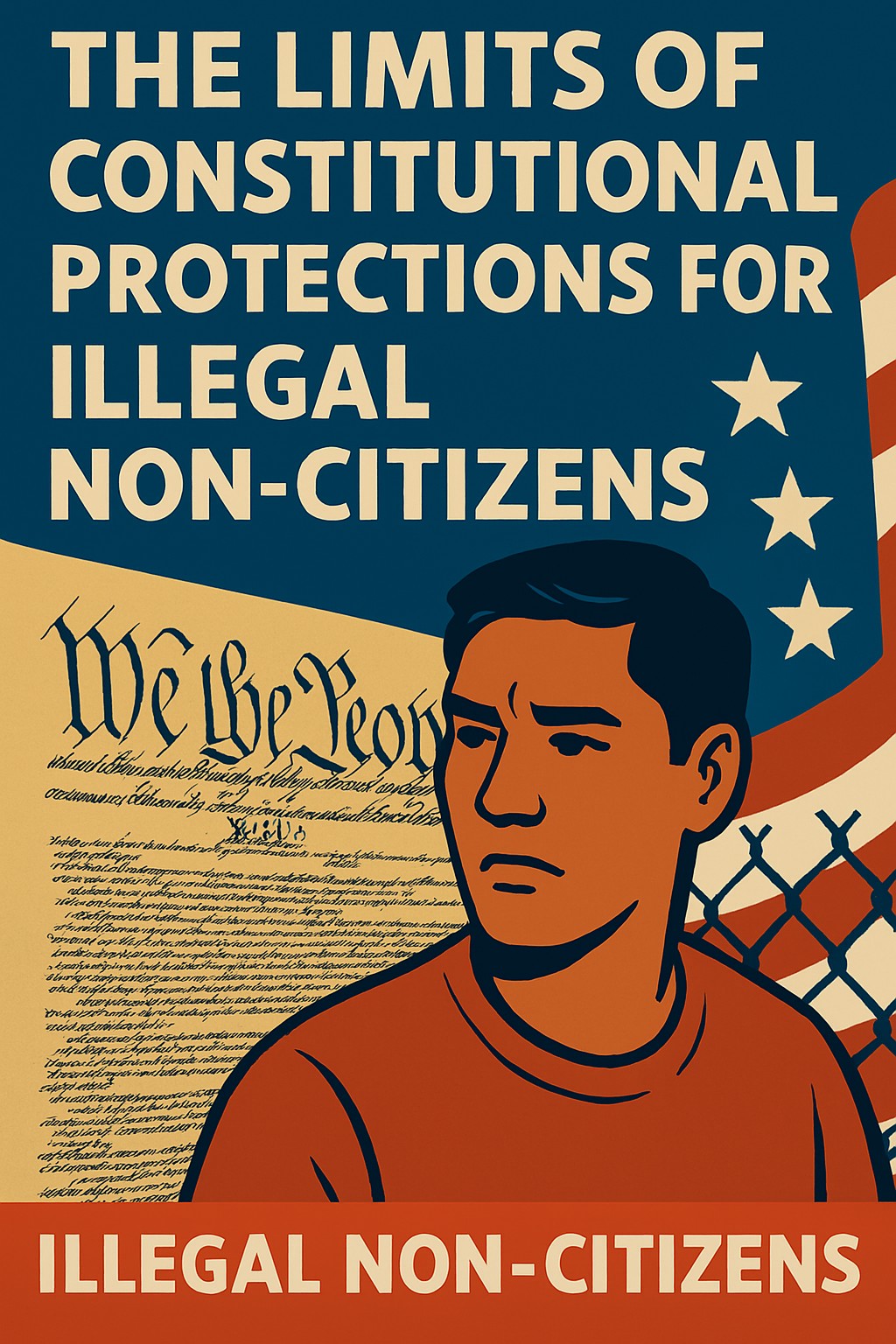
The U.S. Constitution is the foundation of American legal and political life, establishing the framework for individual rights and government powers. However, an ongoing debate persists regarding whether illegal non-citizens should be entitled to constitutional protections, and constitutional law provides strong arguments for why such protections should be limited.
The Constitution’s Primary Intent: Protecting Citizens
The Constitution was crafted to protect the rights of U.S. citizens. The preamble explicitly states that the document was created to “secure the blessings of liberty to ourselves and our posterity,” implying an intrinsic focus on those legally recognized as part of the nation. While the Bill of Rights and later amendments enumerate rights afforded to persons, a case can be made that these protections were intended for individuals within the lawful jurisdiction of the United States.
Legal Precedent: Judicial Interpretations of Rights
The U.S. Supreme Court has played a crucial role in defining constitutional protections, especially regarding non-citizens. Historically, the Court has recognized that certain fundamental rights extend to all individuals within U.S. jurisdiction, regardless of immigration status. However, these interpretations have been nuanced, often balancing individual rights against government interests in regulating immigration and maintaining sovereignty.
Plyler v. Doe (1982): Equal Protection for All “Persons”
One of the most significant cases in this debate is Plyler v. Doe, in which the Supreme Court ruled that states cannot deny free public education to children based on their immigration status. The ruling was grounded in the Equal Protection Clause of the Fourteenth Amendment, which applies to “any person within its jurisdiction.” The Court reasoned that denying education to undocumented children would create a subclass of illiterate individuals, harming society as a whole.
While this case affirms certain rights for illegal non-citizens, it also raises concerns. Critics argue that this interpretation blurs the line between legal and illegal status, making it harder to enforce immigration laws without being accused of discrimination. Additionally, it sets a precedent where illegal non-citizens can invoke constitutional protections typically associated with citizens and lawful residents, complicating legal distinctions.
Zadvydas v. Davis (2001): Due Process Limits on Detention
In Zadvydas v. Davis, the Supreme Court ruled that the government cannot indefinitely detain non-citizens, including illegal immigrants, without justification. The Court extended Fifth Amendment due process protections to non-citizens, determining that indefinite detention without a clear removal plan violates constitutional principles.
This ruling, while based on humanitarian considerations, has practical implications. It limits the government’s ability to detain individuals who cannot be deported immediately due to diplomatic or logistical issues. From an immigration enforcement standpoint, such decisions make it more difficult for the U.S. to remove individuals who remain unlawfully within its borders.
Yick Wo v. Hopkins (1886): Equal Protection Beyond Citizenship
Although not directly an immigration case, Yick Wo v. Hopkins established a precedent that constitutional protections apply to “persons” rather than exclusively to “citizens.” This ruling has been cited in non-citizens cases, reinforcing that constitutional rights extend beyond those with legal status.
The broad application of this principle has sparked debate. While ensuring equal protection is an important legal safeguard, it also raises questions about whether the U.S. should distinguish more clearly between citizens, legal residents, and illegal non-citizens when defining constitutional rights.
Implications and the Need for Clarity
The Supreme Court’s rulings illustrate that certain constitutional rights extend to illegal non-citizens, but the application of these rights varies depending on context. Some argue that granting extensive protections to those who violate immigration laws weakens enforcement and undermines national sovereignty. Others contend that constitutional principles should apply universally to uphold fairness and prevent governmental overreach.
While these precedents demonstrate the judiciary’s stance on fundamental protections, they also highlight the ongoing challenge of maintaining legal clarity. Without clearly defined constitutional boundaries for illegal non-citizens, the U.S. faces difficulties in enforcing immigration laws while respecting human rights principles.
National Sovereignty and Legal Boundaries
A nation must be able to define and enforce its legal boundaries. The Constitution was designed to safeguard the sovereignty of the United States, ensuring that its legal system serves the interests of those who have followed proper channels to become citizens or legal residents. By extending constitutional protections to illegal non-citizens, the government risks incentivizing unlawful entry and undermining the integrity of immigration laws.
The government has a compelling interest in distinguishing between citizens, legal residents, and those who have entered or remained in the country unlawfully. The Constitution does not explicitly grant protections to illegal non-citizens beyond the most basic humanitarian considerations, such as protection against cruel and unusual punishment. Allowing expansive constitutional rights for those who are unlawfully present weakens the government’s ability to regulate immigration and safeguard national interests.
Conclusion
While basic human rights should be respected for all individuals, including illegal non-citizens, constitutional protections should remain reserved primarily for U.S. citizens and legal residents. Extending full constitutional protections to those who have entered the country illegally diminishes the authority of immigration law and challenges the principles of national sovereignty. Constitutional law provides a basis for limiting such protections to ensure the integrity of American legal and political systems.




